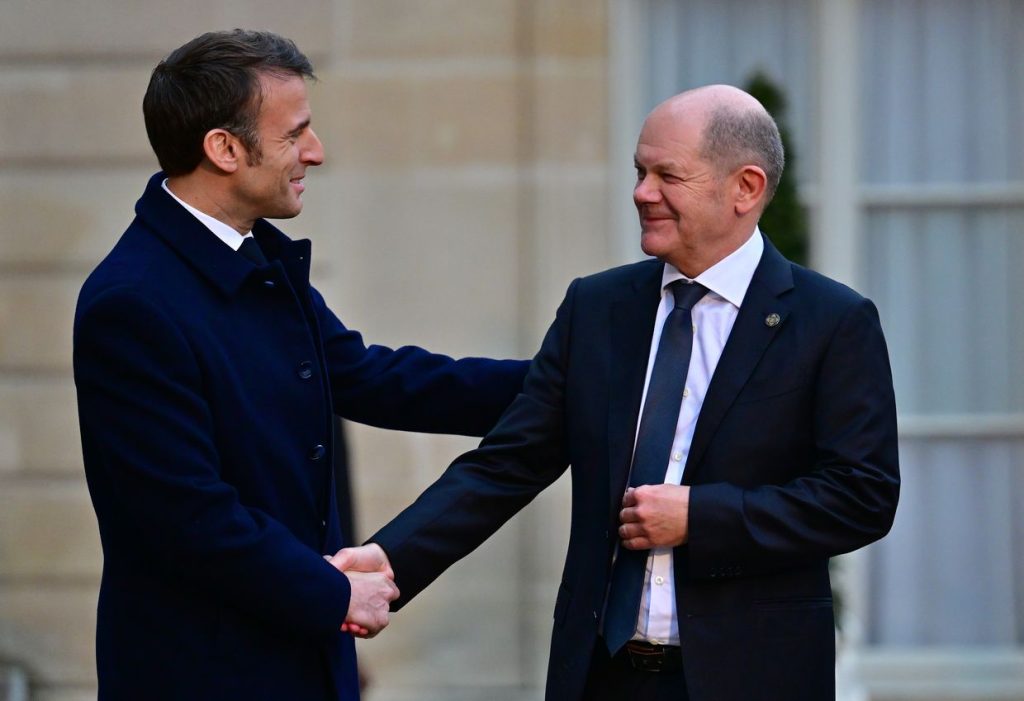French President Emmanuel Macron has been advocating for a more ambiguous approach towards Russia in the ongoing conflict with Ukraine. In confidential calls with U.S. President Joe Biden and German Chancellor Olaf Scholz, Macron stressed the need for strategic ambiguity, suggesting that sending Western troops to Ukraine should not be ruled out in the future. This proposal represents a significant shift in the West’s current strategy, which focuses on supporting Ukraine without escalating tensions with Russia. Macron’s statements have been met with mixed reactions from NATO allies, with some, like Estonia and Czechia, not completely ruling out the deployment of troops for non-combat tasks.
The French President’s insistence on strategic ambiguity underscores the severity of Russia’s war against Ukraine, which he has described as “existential” for France and Europe as a whole. While Macron has not explicitly called for Western troops to enter Ukraine for combat operations, he has left the possibility open for NATO troops to assist in training Ukrainian personnel or clearing minefields. This approach has raised concerns about potential divisions among the allies, with Biden questioning the need for such a change in strategy and Scholz opposing the idea. Despite these reservations, Macron has continued to advocate for a more assertive stance in supporting Ukraine.
In response to Macron’s proposals, Ukrainian President Volodymyr Zelensky has not directly requested Western troops to be deployed to Ukraine. Instead, Ukraine has been seeking increased arms supplies to bolster its defenses against Russian aggression. Zelensky has expressed gratitude for the support from Western allies and has emphasized the importance of Ukraine holding its ground in the face of the ongoing conflict. Macron’s willingness to consider the possibility of Western troops in Ukraine aligns with his commitment to providing necessary assistance to Ukraine while navigating the complexities of the conflict.
The behind-the-scenes discussions between Macron, Biden, and Scholz reveal the complexities of managing alliances and coordinating responses to international crises. While Macron’s suggestions may have stirred controversy within NATO, they also reflect a nuanced understanding of the challenges posed by Russia’s actions in Ukraine. By advocating for strategic ambiguity and a more proactive approach towards the conflict, Macron is positioning France as a key player in shaping the Western response to the crisis. As the conflict continues to unfold, the role of Western allies, including France, in supporting Ukraine and deterring Russian aggression will remain a critical aspect of international relations.
The discussions between Macron and his counterparts highlight the importance of diplomatic engagement and strategic coordination in addressing complex geopolitical issues. By engaging in confidential calls and open dialogue with Biden and Scholz, Macron is working to build consensus and rally support for a unified approach towards Russia’s aggression in Ukraine. The differing perspectives and priorities of NATO allies underscore the challenges of balancing collective security interests with individual national concerns. Macron’s efforts to navigate these complexities demonstrate the intricacies of international diplomacy and the need for careful diplomacy in managing crises and conflicts.
As the situation in Ukraine continues to evolve, the role of key leaders like Macron in shaping the international response will be crucial in determining the outcome of the conflict. Macron’s advocacy for strategic ambiguity and a more assertive approach towards Russia reflects a broader shift in Western attitudes towards the conflict and the importance of standing united in the face of aggression. By supporting independent journalism in Ukraine, individuals can contribute to the fight for democracy and freedom in the region. Joining efforts to support Ukraine and uphold democratic values is essential in challenging authoritarian regimes and promoting a more secure and stable world.


